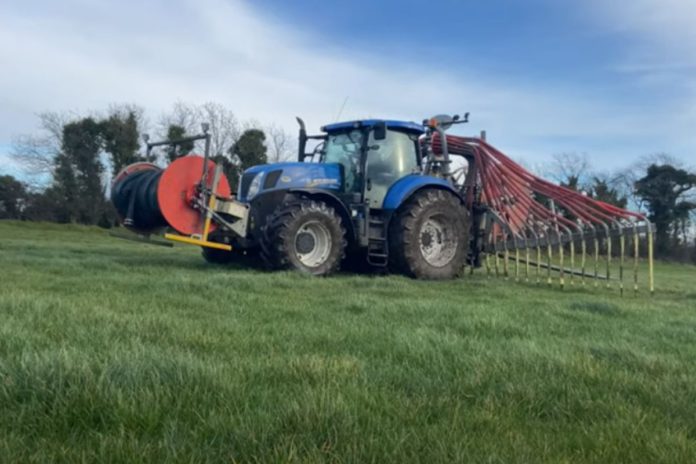Nitrates Action Programme in Ireland
In this article, That’s Farming looks at the fifth Nitrates Action Programme. We cover the programme in its current form, register of chemical fertiliser sales, nitrates inspections and slurry management and storage.
The Department of Agriculture, Food and the Marine has launched Ireland’s Fifth Nitrates Action Programme. It has introduced new changes to the scheme since the previous programme.
In 2006, Ireland introduced its first Nitrates Action Programme. The purpose of the programme is to protect watercourses from the pollution of agricultural sources and, in turn, improve the quality of water.
Following the review of the Nitrates Action Programme in 2010, 2013 and 2017, the Fifth Nitrates Action Programme will expire on December 31st, 2025.
The Good Agricultural Practice Regulations, S.I. No. 113 of 2022 gives the effect of the new programme.
The current Nitrates Action Programme in Ireland
The programme is established countrywide and has control measures for both nitrogen and phosphorus within the regulations.
According to the Department of Agriculture, Food and the Marine, the Nitrates Action Programme at present covers over 139,600 farms across Ireland.
The key features of the current programme include:
- Closed periods for spreading organic and chemical fertilisers;
- Maintenance of green cover for tillage farmers;
- Buffer zones from watercourses;
- Stocking rate limitations;
- Maximum application rates for nitrogen and phosphorus;
- The storage requirement for livestock manure.
Ireland is also under a derogation of 170kg N/ha livestock manure nitrogen limit, as governed by the Nitrates Directive.
Register of chemical fertiliser sale
The Minister of Agriculture, Food, and the Marine has adopted legislation to establish a register for the sale of chemical fertiliser.
This will come into effect on January 1st, 2023.
This register will enable accurate tracking of fertiliser sales and map where farmers are applying fertiliser across the country.
Furthermore, it will provide an understanding of the financial value of livestock manure and its utilisation on land.
The DAFM will place the responsibility of the register on wholesalers, merchants and distributors of fertiliser. They will register the sales against individual farmers’ herd numbers.
Then they will return this data to the Department of Agriculture, Food and the Marine.
Nitrates inspections
The Department of Agriculture, Food and the Marine personnel undertake approximately 3,400 nitrate-related inspections on farms across Ireland.
The Environmental Protection Agency (EPA) and other relevant authorities are due to put in place a local authority agricultural inspection programme.
This will include:
- Review of the local authority inspection programme to take place every four years;
- Record keeping of appropriate records for annual submission to EPA;
- Developing a National Agricultural Inspection Programme on where to prioritise inspections;
- Training of personnel carrying out farm inspections.
Management of slurry storage
Managing slurry is a vital area for the loss of nutrients into the environment.
Furthermore, to reduce these losses, the DAFM has made the following changes:
- From March 11th, 2022, all slurry generated on a holding must be applied by October 8th that year.
- From January 1st, 2023, all slurry generated on a holding must be applied by October 1st, that year.
Farmers may still be permitted to spread slurry up to October 15th each year. The Department of Agriculture, Food and the Marine will confirm this by September 1st, 2022.
In this next segment, we will look at further aspects of the programme.





